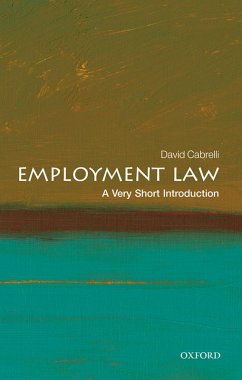
Automation Anxiety (eBook, ePUB)
Why and How to Save Work

PAYBACK Punkte
6 °P sammeln!
Are super-capable robots and algorithms destined to devour our jobs and idle much of the adult population? Predictions of a jobless future have recurred in waves since the advent of industrialization, only to crest and retreat as new jobs-usually better ones-have replaced those lost to machines. But there's good reason to believe that this time is different. Ongoing innovations in artificial intelligence, machine learning, and robotics are already destroying more decent middle-skill jobs than they are creating, and may be leading to a future of growing job scarcity. But there are many possible...
Are super-capable robots and algorithms destined to devour our jobs and idle much of the adult population? Predictions of a jobless future have recurred in waves since the advent of industrialization, only to crest and retreat as new jobs-usually better ones-have replaced those lost to machines. But there's good reason to believe that this time is different. Ongoing innovations in artificial intelligence, machine learning, and robotics are already destroying more decent middle-skill jobs than they are creating, and may be leading to a future of growing job scarcity. But there are many possible versions of that future, ranging from utterly dystopian to humane and broadly appealing. It all depends on how we respond. This book confronts the hotly-debated prospect of mounting job losses due to automation, and the widely-divergent hopes and fears that prospect evokes, and proposes a strategy for both mitigating the losses and spreading the gains from shrinking demand for human labor. We should set our collective sights, it argues, on ensuring access to adequate incomes, more free time, and decent remunerative work even in a future with less of it. Getting there will require not a single "magic bullet" solution like universal basic income or a federal job guarantee but a multi-pronged program centered on conserving, creating, and spreading work. What the book proposes for a foreseeable future of less work will simultaneously help to address growing economic inequality and persistent racial stratification, and makes sense here and now but especially as we face the prospect of net job losses.
Dieser Download kann aus rechtlichen Gründen nur mit Rechnungsadresse in A, B, BG, CY, CZ, D, DK, EW, E, FIN, F, GR, HR, H, IRL, I, LT, L, LR, M, NL, PL, P, R, S, SLO, SK ausgeliefert werden.













